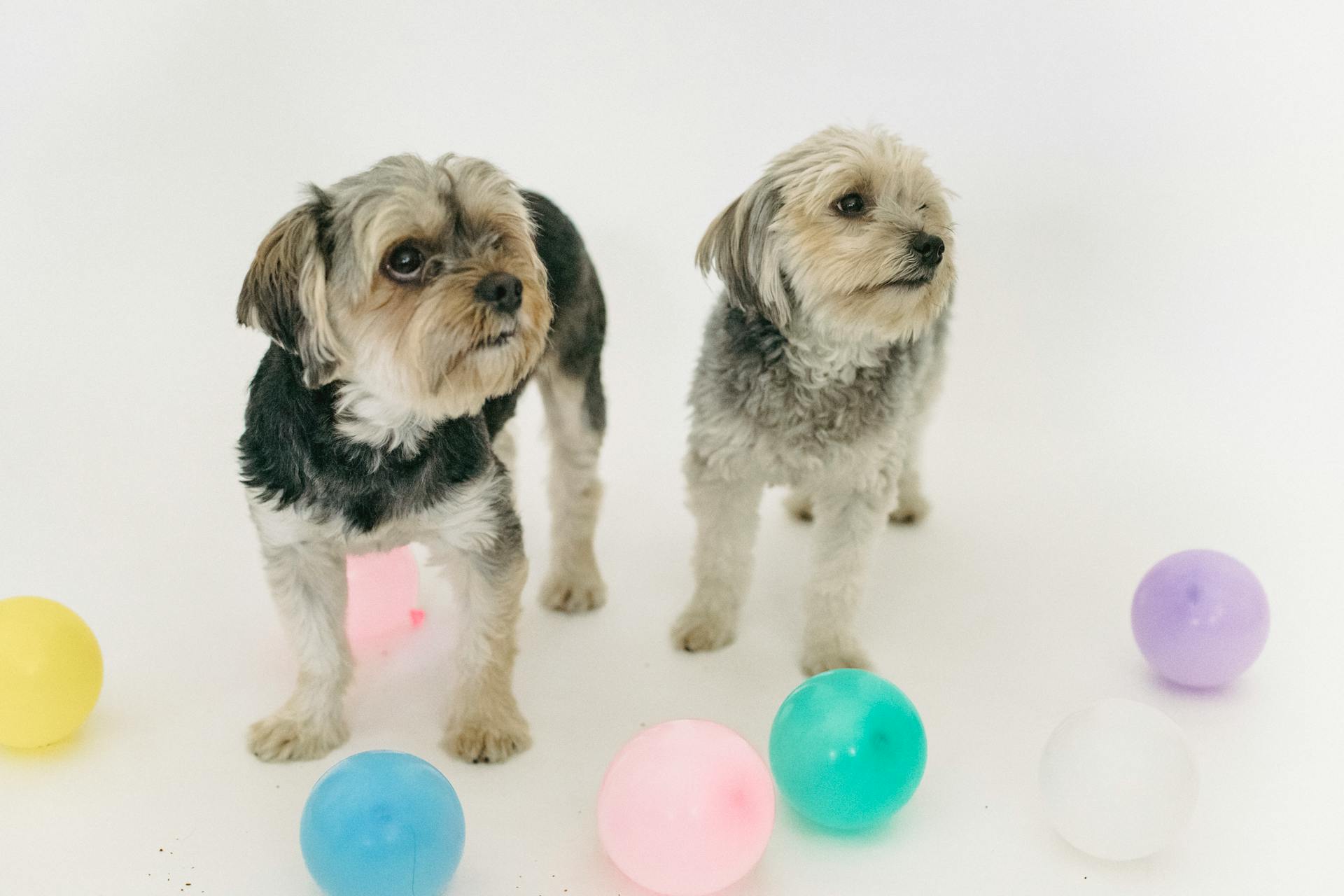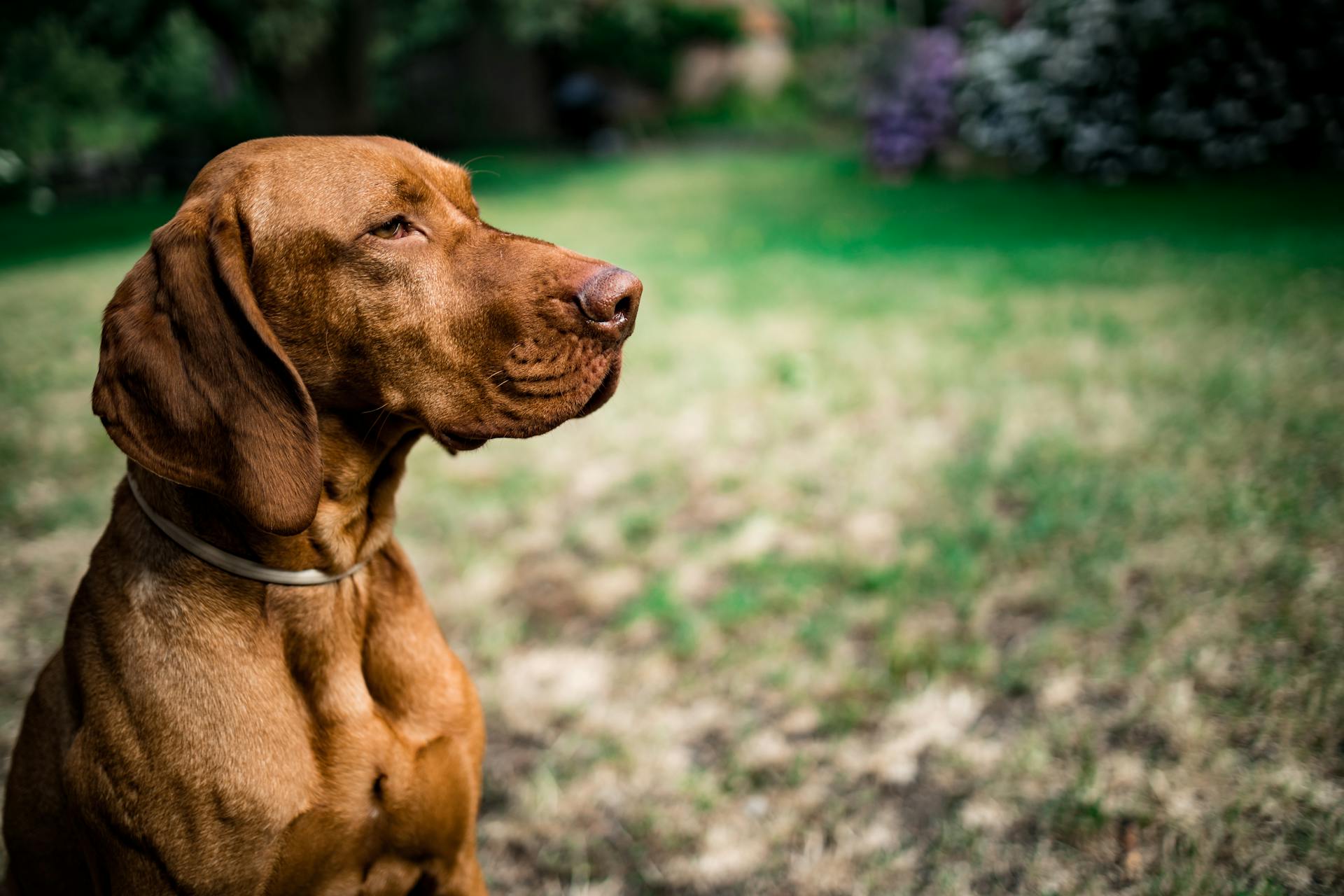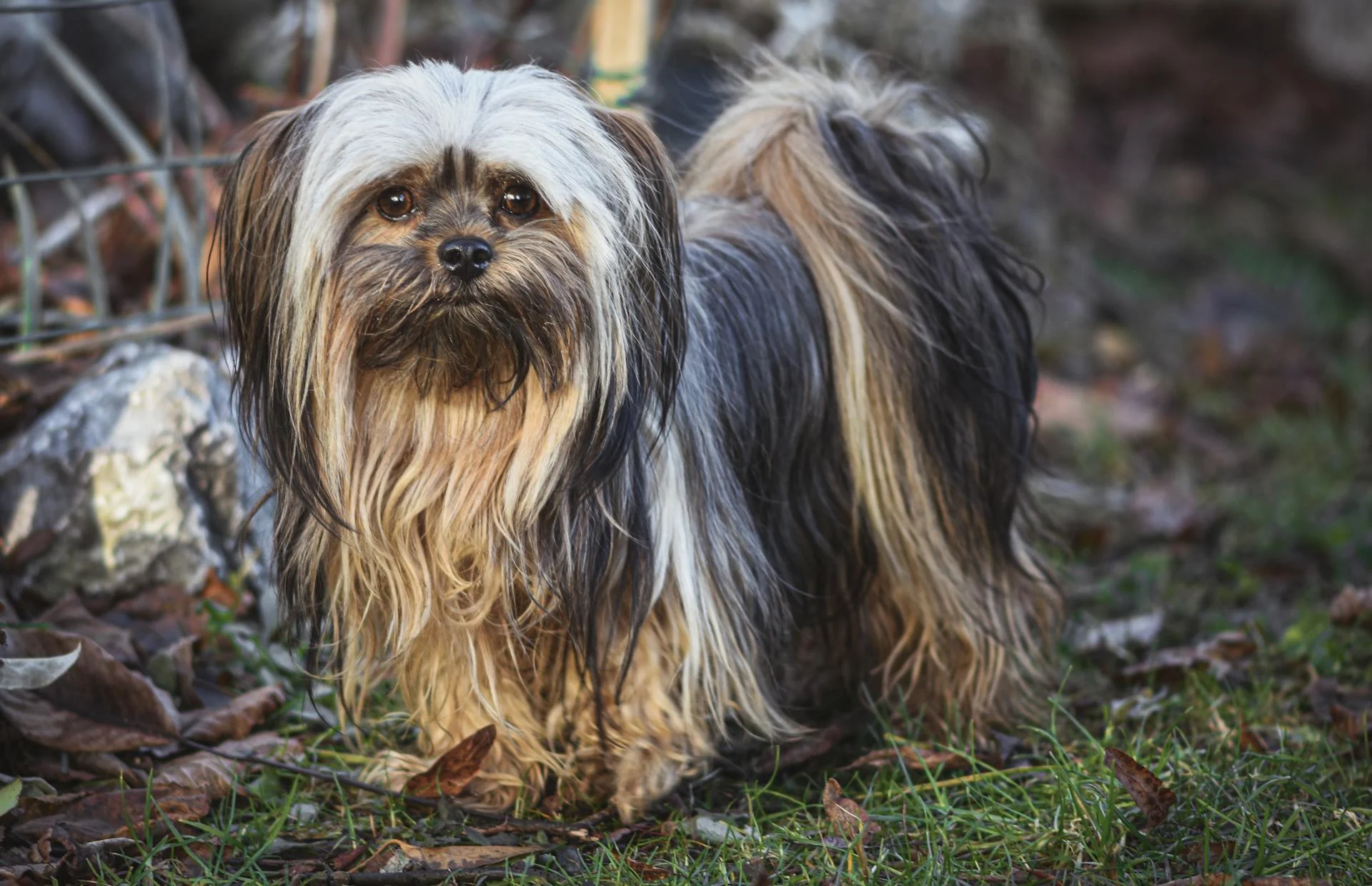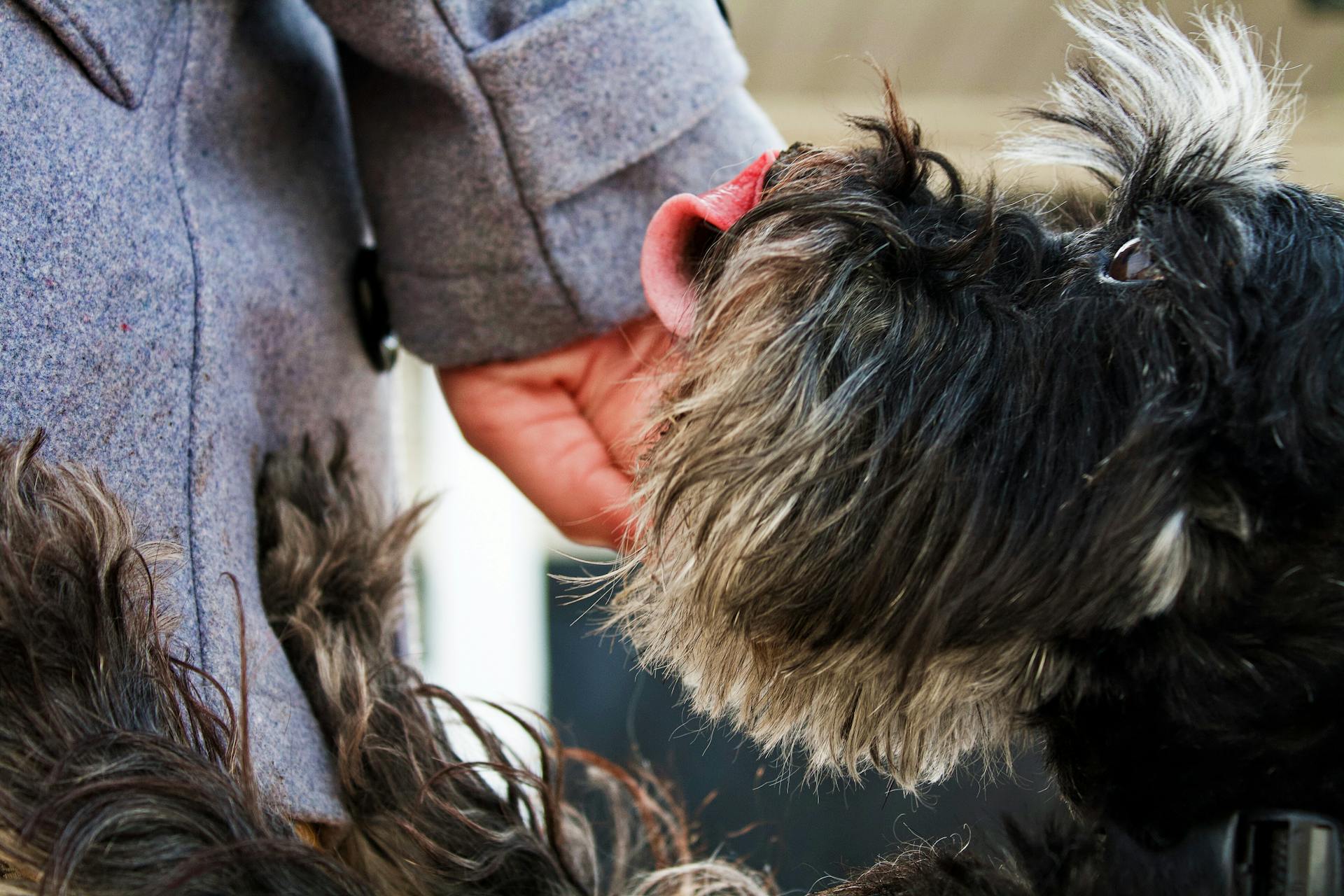
Schnauzers are intelligent dogs that thrive on mental and physical stimulation. They require regular exercise to stay happy and healthy.
Schnauzers are naturally protective of their families, but proper socialization can help them become confident and calm companions. This is especially important during the critical puppy socialization period.
To keep your Schnauzer happy and healthy, it's essential to provide them with plenty of opportunities for exercise and play. A minimum of 30 minutes of daily exercise is recommended.
Regular grooming is also crucial for Schnauzers, as their double coats require regular brushing to prevent matting.
Schnauzer Characteristics
Schnauzers are known for their bright and vigilant temperament, making them great watchdogs.
They're quite vocal, so be prepared for some barking. Miniature schnauzers are wary of strangers but devoted to their family, which makes them great companions.
Their affection level is high, and they enjoy playtime, so be sure to spend quality time with them. They're also very intelligent and easy to train, which makes them a popular choice for many owners.
Here's a quick rundown of their characteristics:
Return
Schnauzers are known for their loyal and protective nature, but they can also be wary of strangers, making them excellent watchdogs.
Their independent streak can make training a challenge, but consistency and positive reinforcement are key to developing good habits.
Schnauzers are highly intelligent and thrive on mental stimulation, so they need regular exercise and playtime to prevent boredom and destructive behavior.
Their distinctive beards and eyebrows require regular grooming to prevent matting and tangling.
Schnauzers are generally healthy dogs, but they can be prone to certain health issues, such as eye problems and hip dysplasia.
Their lifespan ranges from 12 to 14 years, making them a long-term commitment for any owner.
Standard
The Standard Schnauzer is a loyal companion, known for its protective nature and watchful eye. They're wary of strangers and devoted to their family, making them great watchdogs.
Standard Schnauzers are generally quite vocal, so be prepared for a dog that will alert you to any potential threats. They're also very affectionate and enjoy playtime, but they can be a bit stubborn at times.
If you're an active person, you'll be happy to know that Standard Schnauzers need regular exercise to stay happy and healthy. They require a medium level of exercise, which is perfect for a daily walk or playtime in the yard.
Here's a summary of the Standard Schnauzer's characteristics:
Breed Overview
Schnauzers are known for being friendly and affectionate, making them wonderful companions for many families.
Their small size doesn't mean they're not great with kids - they can get along well with children, which is a big plus for families with little ones.
One of the best things about Schnauzers is that they don't shed much, which means less dog hair for you to clean up.
Their low-shedding coat is definitely a perk for people with allergies or who prefer a cleaner home.
Care and Maintenance
The Schnauzer's coat requires regular grooming to prevent it from becoming a tousled mess. They need to be combed at least twice a week, and ideally plucked or clipped every six weeks to maintain their harsh coat.
Their beard needs to be washed regularly, ideally daily, to prevent it from smelling due to food and saliva. You'll also want to clean and brush out their beard to prevent tangles.
A quick daily brushing will remove any loose fur and prevent tangles, and most pet parents opt to take their dog to a groomer every one or two months to have the coat clipped. Here's a list of regular grooming tasks for your Schnauzer:
- Bath roughly every month, depending on how dirty your dog gets
- Trim the fur around the eyes regularly
- Check your dog's ears at least weekly for wax buildup and abnormalities
- Trim your dog's nails about every month
- Brush their teeth daily
Exercise Needs
Miniature Schnauzers need a moderate amount of exercise each day. Regular walks and playtime will keep them happy and healthy.
Schnauzers are a very active breed, requiring long walks and a couple of hours of exercise per day. This can be broken up into shorter sessions if you have a busy schedule.
Their high energy levels mean they'll enjoy games, training, and interactive toys. Keep them engaged and stimulated to prevent boredom.
As they're a medium-sized dog, they'll need plenty of physical activity to stay fit and trim. Regular exercise will also help prevent health problems.
Regular exercise will also help prevent health problems.
Training
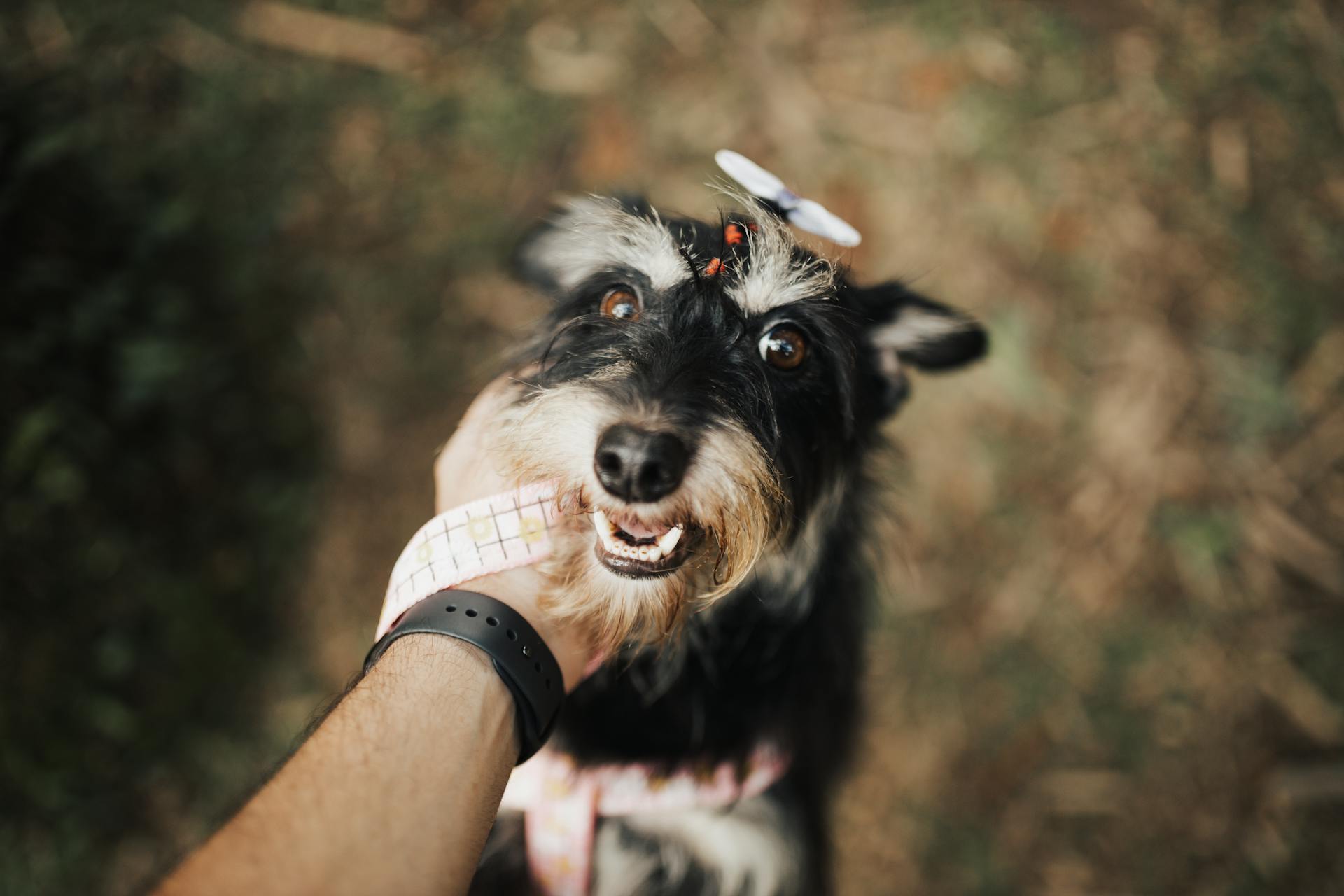
Miniature schnauzers are highly intelligent and thrive with a job to do, so they need regular training and mental stimulation to prevent boredom and bad habits from forming.
A reliable recall is crucial, and reward-based training should start early and be ongoing to ensure your dog learns good habits quickly.
Miniature schnauzers generally learn quickly, but their high intelligence can make them bored with repetitive training, so it's essential to keep training sessions fun.
Exposing your dog to different people, dogs, and places from a young age is vital for their socialization and to prevent them from becoming too anxious or fearful.
Miniature schnauzers are semi-open to meeting strangers and other dogs, but their prey drive may make them chase smaller household pets, so it's essential to socialize them properly.
They may bark a lot, especially if left alone, which could be a sign of separation anxiety, so training and exercise can help limit the barking.
Take a look at this: Potty Training Mini Schnauzer
Care and Upkeep
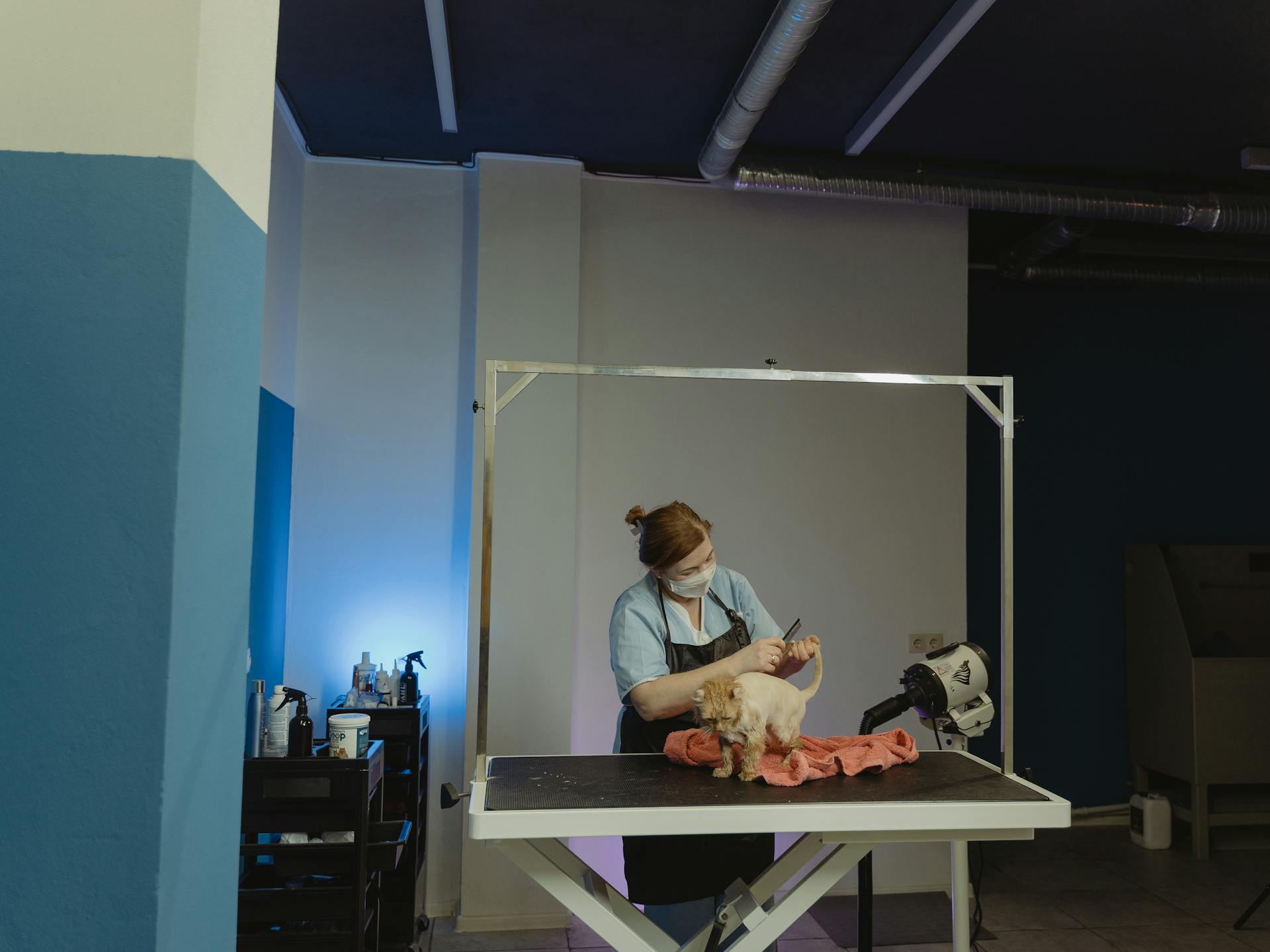
Miniature Schnauzers require regular grooming to prevent matting and tangling of their wiry topcoat. They need to be combed at least twice a week, with a focus on the beard area to prevent food and dirt buildup.
Their coat needs regular maintenance, including plucking or clipping every six weeks to keep it from becoming a mess. Without this care, the coat will become unruly and require more frequent grooming.
The long beard of the Miniature Schnauzer needs to be washed daily to prevent it from smelling. The rest of the coat requires a bath once a month.
In addition to coat care, Schnauzers require regular checks and maintenance of their ears, eyes, teeth, and nails. This includes weekly ear checks and nail trims every month.
Here's a quick rundown of the Schnauzer's grooming needs:
- Coat: Combed at least twice a week, with plucking or clipping every six weeks
- Beard: Washed daily
- Rest of coat: Bathed once a month
- Ears: Checked weekly
- Nails: Trimmed every month
- Teeth: Brushed daily
Health and Nutrition
Schnauzers are generally a healthy breed, but they can be prone to certain health issues.
Their double coat requires regular grooming to prevent matting and tangling.
Schnauzers need a balanced diet that includes protein-rich foods to maintain their energy levels and overall health.
A diet rich in omega-3 fatty acids can help support their skin and coat health.
For your interest: Miniature Schnauzer Diet
Common Health Problems
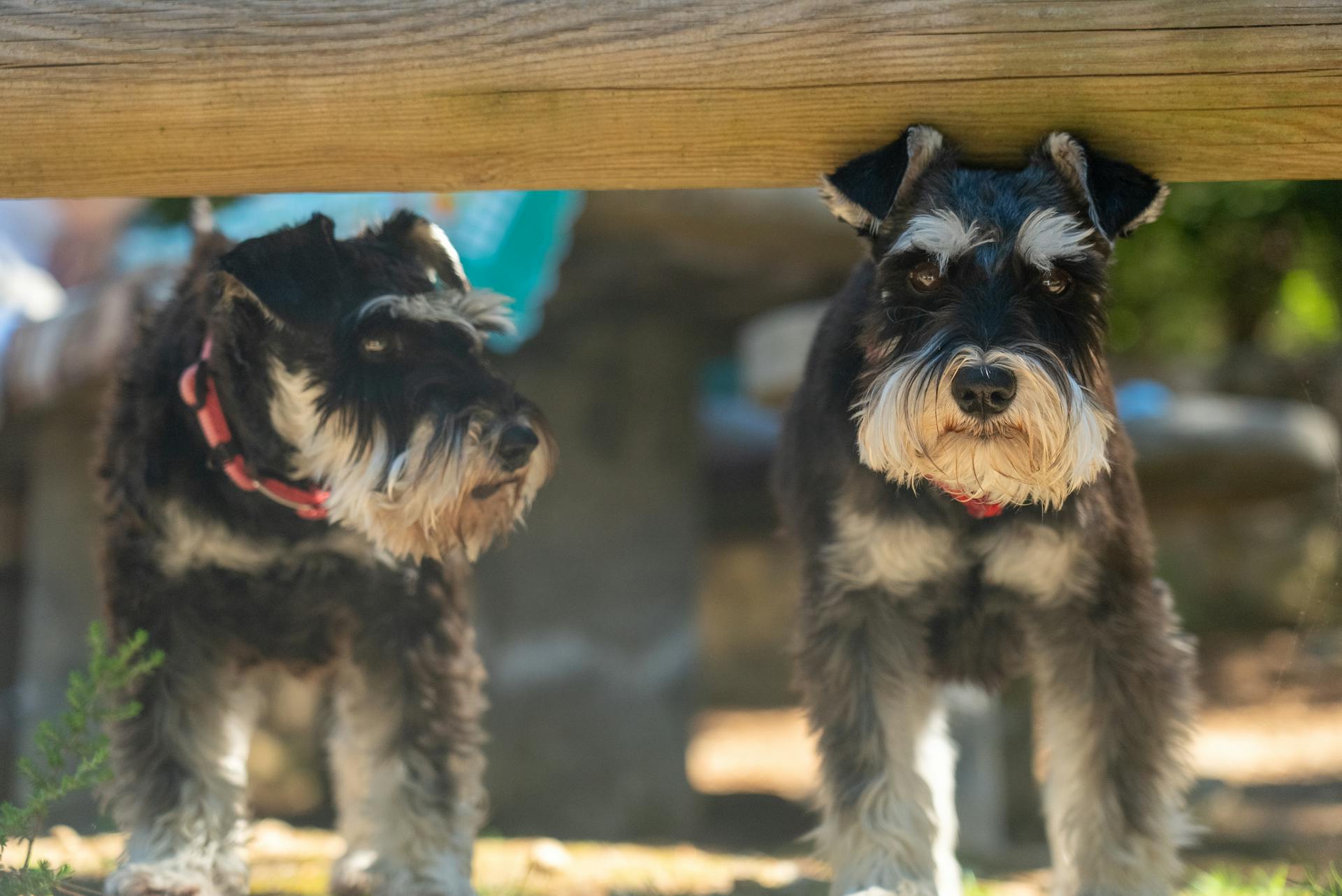
As a responsible dog owner, it's essential to be aware of the potential health issues that can affect your miniature schnauzer. Cataracts are a common health problem in the breed, causing the lens of the eye to become cloudy and reducing vision.
Miniature schnauzers can also inherit high cholesterol or triglycerides, known as hyperlipidemia, which can lead to digestive problems, skin issues, behavioral changes, seizures, and eye problems.
Pancreatitis, an inflammation of the pancreas, can be painful and even life-threatening if left untreated.
A liver shunt is a congenital abnormality that can cause serious health issues in miniature schnauzers, as it allows blood to bypass the liver and go straight to the rest of the body.
Urinary stones can develop in miniature schnauzers and cause symptoms like blood in the urine and difficulty urinating.
Mycobacterium Avium Complex (MAC) is a rare but fatal condition that affects the immune system, causing a systemic infection.
Here are some common health problems that can affect miniature schnauzers:
- Cataracts
- Hyperlipidemia
- Pancreatitis
- Liver shunt
- Urinary stones
- Mycobacterium Avium Complex (MAC)
Diet and Nutrition
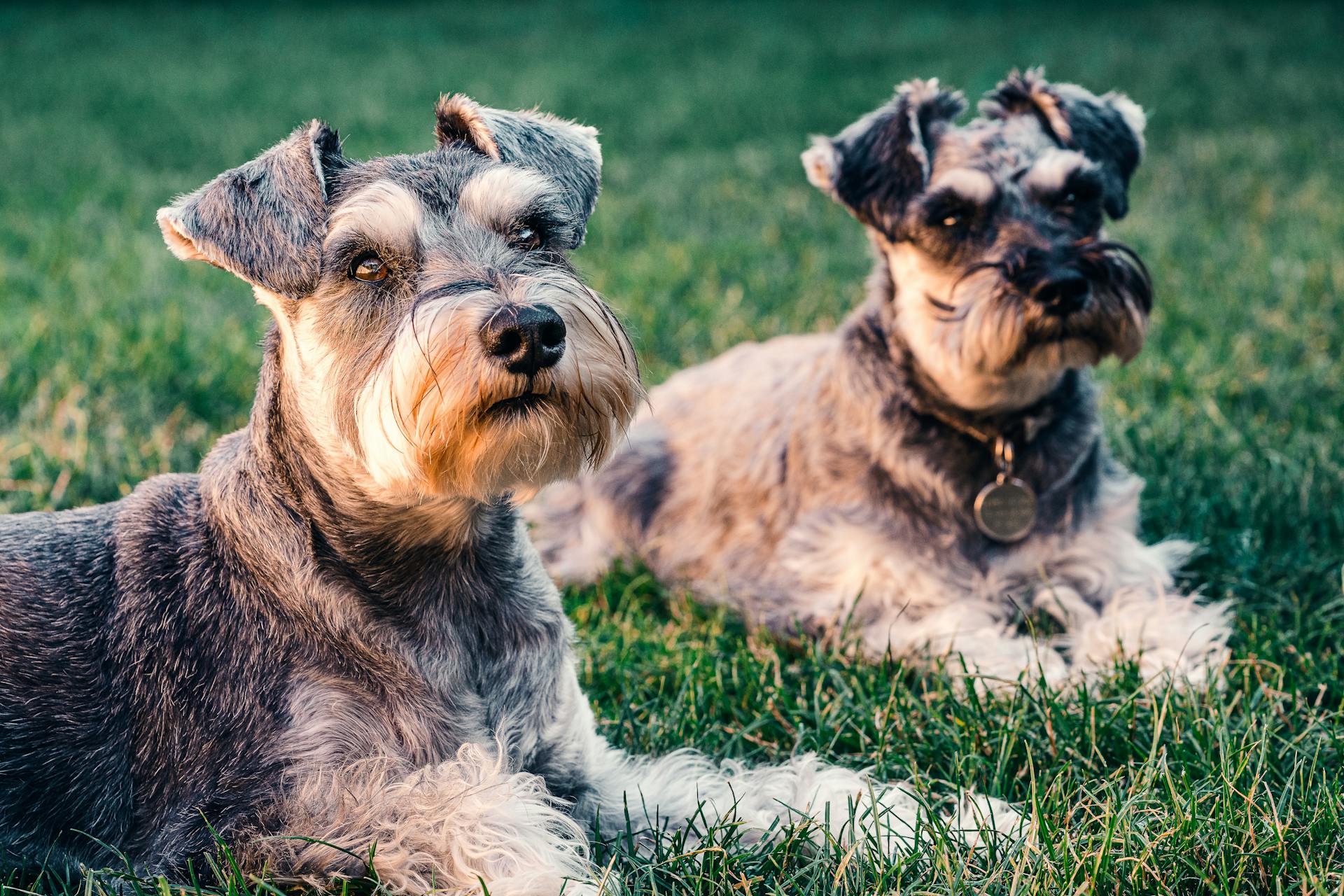
Providing fresh water is essential for your miniature schnauzer at all times.
Feed your miniature schnauzer high-quality, nutritionally balanced canine diets.
Typically, two measured meals per day are recommended, but it's best to discuss the amount and type of diet with your vet to ensure you're meeting your dog's needs.
Be mindful of treats and other extra food to prevent overeating.
Some miniature schnauzers may need a special diet to manage their high fat levels, which should always be prescribed by a veterinarian.
Frequently Asked Questions
What is a schnauzer personality?
Schnauzers are known for their intelligent, reliable, and high-spirited nature, making them loyal companions and guards. Their unique blend of devotion, bravery, and intelligence sets them apart as a distinctive breed
Do Schnauzers bark a lot?
Yes, Schnauzers are known for barking frequently, making them effective watchdogs.
What is special about Schnauzers?
Schnauzers are highly versatile dogs with a rich history of performing various tasks, including guarding, hunting, and protecting their owners. Their unique combination of skills and abilities makes them a special breed
Is a Schnauzer a good family dog?
Yes, Schnauzers are generally great with children and make excellent family pets due to their playful and tolerant nature. They also serve as loyal watchdogs, making them a wonderful addition to many families.
Are Schnauzers a difficult breed?
Schnauzers can be a bit stubborn, but with the right experience, they're relatively easy to train. Experienced dog handlers may find them a rewarding breed to work with.
Featured Images: pexels.com
